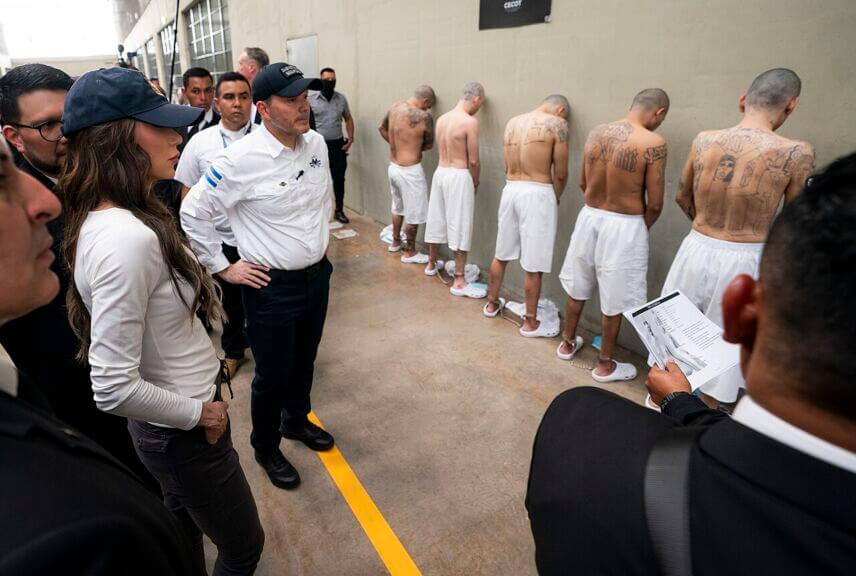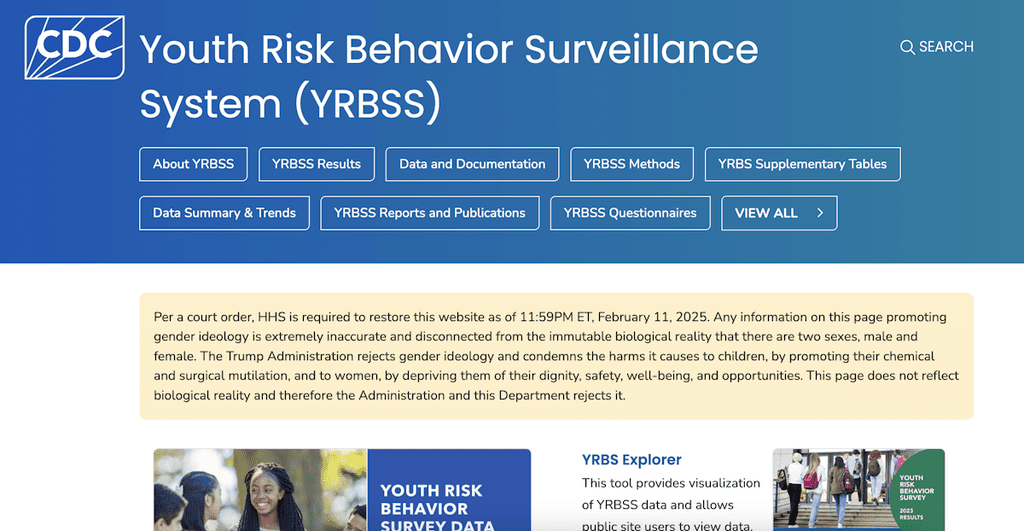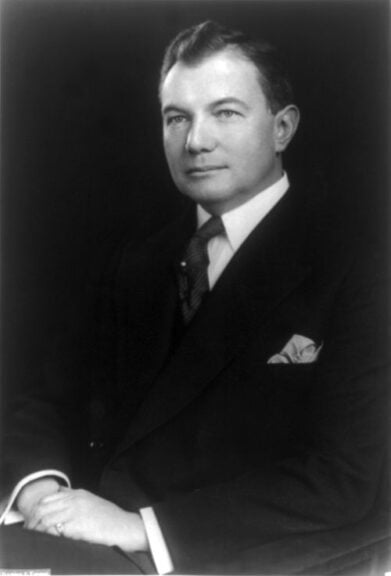This educational article comes at a time when the right to free speech in America is being threatened by the current administration—in multiple ways.
The most obvious threat to the freedom of speech (as well as the right to protest) has come in the form of the removal of students on visas (and with green cards) who have spoken out or written anything that criticizes the far-right government of Israel.
The most publicized examples of this are: Mahmoud Khalil, Rümeysa Özturk, Momodou Taal, and Mohsen Mahdawi. Mahdawi was probably the most obvious case of government censorship simply because of the sheer volume of evidence—video, news reports, and witness testimony—that he was far from being antisemitic, as the government was claiming. In fact he actively fought against antisemitism.
The government isn’t even attempting to hide the reason for what they’re doing. Don’t let it go unnoticed that they’re doing this to foreign students—at first. If they are able to get away with it with minimal pushback, then they’ll move to begin censoring American citizens who criticize the way the Israeli government is prosecuting the war in Gaza.
Because they aren’t attempting to cover up the reason for their actions, these students are held in immigration detention centers without being charged with any crime(s). They’re also holding them in detention centers located far away from their family, friends, and lawyers. This is intentional. The then-8-month pregnant wife of Khalil and his lawyer couldn’t locate him after he was arrested by ICE at Columbia University.
One of our core constitutional rights is the right to due process—to not be held or imprisoned by the government without reason or an opportunity to defend ourselves.

The only way the trump administration can succeed in their “revenge and retribution tour” is with the ability to lock up their political opponents. With the right to due process in the way, they can’t accomplish this without their targets having committed any actual crimes for them prosecute.
“Because he said something mean about me” will not fly in a court of law—in front of a judge (unless they successfully replace every judge with Trump loyalists, which is a whole new conversation/crisis).
If we, as Americans, allow the Trump Administration to continue deporting individuals for their speech without due process, we will see a shift into using censorship to punish citizens next.
The United States Supreme Court recognized this threat when they ruled 9-0 that the administration could not deport immigrants without first giving them notice—enough notice to allow them time to file a Habeas Corpus or legal filing pushing back against punishment when they are innocent.
An investigation by CBS/60 Minutes found that 75% of the 238 Venezuelans sent to CECOT in El Salvador had no criminal history.

A more recent investigation conducted by ProPublica, Texas Tribune, and Venezuelan news organizations found that the Trump Administration knew prior to deporting them, that a vast majority of the 238 now in CECOT had never committed a crime. Documents from the Department of Homeland Security have provided proof that they were aware of their innocence and sent them to a prison for terrorists for life anyway.
The reason they didn’t turn the planes around after a federal judge ordered them to, is because, in my opinion, they knew that if these men were given their right to due process, their innocence would be revealed and Americans who currently support stripping the right from immigrants could turn against it. That would ruin their plan to win consent of citizens prior to stripping it from them.
Finally, the arrest and deportation of foreign college students explains the Trump administration’s current attack on Harvard University—removing their ability to enroll foreign students. Please do not let the fact that the attempts to strip Constitutional rights from people currently only affect foreign-born individuals. If we stay silent in the face of government censorship and violation of the right to due process, it will shift into something used against American-born citizens who express opinions the government doesn’t like.
Government Censorship
The following article from The Conversation about Government Censorship was written by Professor of Law, Gregory P. Magarian.

When most people think of how governments stifle free speech, they think of censorship. That’s when a government directly blocks or suppresses speech. In the past, the federal government has censored speech in various ways. It has tried to block news outlets from publishing certain stories. It has punished political dissenters. It has banned sales of “obscene” books.
Today, however, the federal government rarely tries to censor speech so crudely. It has less blatant but very effective ways to suppress dissent. The current actions of the Trump administration show how government can silence speakers without censoring them.
My quarter century of research and writing about First Amendment rights has explored the varied tools that governments use to smother free expression. Among the present administration’s chosen tools are making institutions stop or change their advocacy to get government benefits; inducing self-censorship through intimidation; and molding the government’s own speech to promote official ideology.

Using benefits to coerce speech
The Supreme Court has made clear that the First Amendment bars the government from conditioning benefits on the sacrifice of free speech.
Government employers may not refuse to hire employees of the opposing political party, nor may they stop employees from speaking publicly about political issues. The government may not stop funding nonprofits because they refuse to endorse official policies, or because they make arguments the government opposes.
The First Amendment, however, works only if someone asks a court to enforce it, or at least threatens to do so.
The Trump administration has issued orders that withdraw security clearances, cancel government contracts and bar access to government buildings for law firms that have opposed the administration’s policies or have advocated diversity, equity and inclusion, or DEI. Some law firms have sued to block the orders. More firms, however, have made deals with the administration, agreeing to end DEI programs and to do free legal work for conservative causes.
The administration similarly has withheld funding from universities that embrace DEI or that, by the administration’s account, have fomented or tolerated antisemitism. Harvard University has resisted that pressure. But Columbia University has capitulated to President Donald Trump’s demands that include cracking down on protests, giving university officials more control over controversial academic programs and hiring more conservative professors.
The Supreme Court may ultimately declare the administration’s gambits unconstitutional, but it has already succeeded in leveraging government benefits to make major institutions change their speech.
Intimidating speakers into silence
First Amendment law also restricts government actions that deter or “chill” expression rather than squarely banning it.
That means the government may not regulate speech through vague laws that leave lawful speakers uncertain whether the regulation reaches them. For example, the Supreme Court in 1971 struck down a Cincinnati, Ohio, ordinance that criminalized any public assembly the city deemed “annoying.”
Likewise, the government may not make people disclose their identities as a requirement for acquiring controversial literature or for supporting unpopular causes. In the classic case, the Supreme Court during the civil rights era blocked Alabama from making the NAACP disclose its membership list.
Chilling of speech is hard to detect, but the current public climate strongly suggests that the Trump administration has plunged the thermostat.
College and university campuses, which rumbled in spring 2024 with protests against the Gaza war, have gone largely quiet. Large corporations that challenged the first Trump presidency have fallen into line behind the second. Big liberal donors have folded up their wallets.
Some of that dampening likely reflects fatigue and resignation. Much of it, though, appears to reveal successful intimidation.
The administration has proclaimed that it is deporting noncitizen students, using their lawful speech as justification. While those expulsions themselves are classic censorship, their hidden reach may stifle more speech than their immediate grasp. Noncitizens are legally attractive targets for government censorship because courts largely defer to the president on matters of national security and immigration.
The Trump administration could not lawfully treat U.S. citizens as it is treating, lawfully or not, foreign nationals. But most citizens don’t know that. The vivid spectacle of punished dissenters seems likely to chill other dissenters.
Whitewashing government speech
The First Amendment only bars the government from controlling private speech. When the government speaks, it can say what it wants. That means people who speak for the government lack any First Amendment right to replace the government’s messages with their own.
In theory, then, every new federal administration could sweepingly turn government institutions’ speech into narrow propaganda. That hasn’t happened before, perhaps because most governments realize they are just temporary custodians of an abiding republic.
The Trump administration has broken this norm. The administration has ordered the purging of ideologically disfavored content from the Smithsonian museums, implemented book bans in military libraries and installed political supporters to run cultural institutions.
None of those actions likely violates the First Amendment. All of them, however, have significant implications for free speech. In what may be the most quoted line in the First Amendment legal canon, Justice Robert Jackson declared in 1943 that government should never “prescribe what shall be orthodox … in matters of opinion.”

A 21st-century federal government can dramatically skew public discourse by honing government speech with the flint of official ideology. Trump has assigned Vice President JD Vance, who sits on the Smithsonian’s board, the role of “seeking to remove improper ideology.” If Vance decides what the Smithsonian can and cannot say about slavery and Jim Crow, then the Smithsonian will teach people only what Vance wants them to learn about those subjects. That influential source of knowledge will push public discussion toward the government’s ideology.
When government beneficiaries agree to say what the president wants, when the government intimidates speakers to silence themselves, and when the government sharpens its own speech into propaganda, no censorship happens.
But in all those scenarios, the government is doing exactly what justifies fear of censorship and what First Amendment law exists to prevent: using official power to make speech less free.
The article featured in this post is from The Conversation and republished here under a Creative Commons License. Read the original article. Learn more about third-party content on ZanyProgressive.com.




